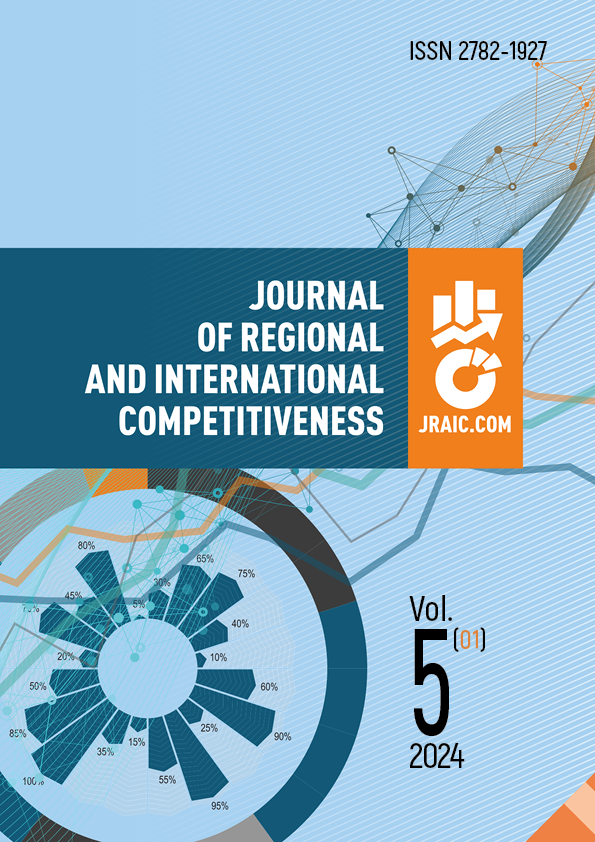Sankt-Peterburg, St. Petersburg, Russian Federation
The paper presents an analysis of food stamp programmes in Russia. These programmes are funding the purchase of food in the form of directed payments or auxiliary payment instruments. However, there is no unified concept of food stamps. Indeed, the separate regional programs are launched. They controlled both by the State and non-profit associations. Additionally, there are various practices in Russia using similar tools to ensure national food security. The paper attempts to formulate mandatory criteria for food stamps. It also presents a classification for assessment of food stamp programmes structure. Hence the work assesses the organisational changes in terms of digitalisation of food stamp programmes. Nowadays, the Russian Federation is in the process of accumulating experience in the use of food stamps. The independent programs are being launched and assessed in various regions, the regulatory framework for the launch of larger-scale projects are being developed, etc. The most significant change increasing the efficiency of using food stamps is the digitalisation of the process. Modern food stamps have undergone a profound organisational transformation through the use of digital tools. Their use is more convenient for all stakeholders and makes it possible to effectively provide food support to the indigent people. Hence introducing of food stamp programme in the Russian Federation will improve public access to food and contribute to an increase in living standards. Moreover, the programme expands the demand for food products, increases the economic stability of producers, and forms conditions for import substitution programmes for food production.
food stamps; food support; food security; the indigent people; food stamp programmes
1. Kotlyarov, I. D. (2011). Forms of doing business in the virtual space: an attempt at classification. Ekonomicheskaya nauka sovremennoj Rossii, 2(53), 89–100 (in Russian).
2. Kotlyarov, I. D. (2012). Trends in the evolution of e-commerce. Internet-marketing, (4), 252–258 (in Russian).
3. Kurbanov, A. H. (2015). Maintenance of food security of megapolises of megacities: theory and practice. Nacional'nye prioritety Rossii, 2(16), 133–142 (in Russian).
4. Mokin, V. N., Pereverzeva, T. A., & Stepanova, T. V. (2015). The volatility of private consumption as the basis for food security of St. Petersburg. Obrazovanie, ekonomika, obshchestvo, 3-4(49-50), 64–71 (in Russian).
5. A unique project for the purchase of dairy products using an electronic certificate has been launched in Yamal. Government of the Yamalo-Nenets Autonomous Okrug. (2023). Retrieved from https://yanao.ru/press-tsentr/novosti/na-yamale-zapustili-unikalnyy-proekt-po-pokupke-molochnoy-produktsii-s-pomoshchyu-elektronnogosertifikata/,%20https://rg.ru/2023/05 /22/x5-zapustila-oplatu-tovarov-elektronnymi-sertifikatami.html (accessed 13.11.2023) (in Russian).
6. Nilova, L. P., & Malyutenkova, S. V. (2017). Food basket for healthy food in the conditions of the megapolis. Mezhdunarodnyj nauchnyj zhurnal, (4), 31–35 (in Russian).
7. Grocery cards in the Kaliningrad region in 2022. GOGOV, 03/18/2022. Retrieved from https://gogov.ru/news/886607 (accessed 13.11.2023) (in Russian).
8. Kapustina, I. V., Barsukova, B. V., Ivanov, E. L., & Sharonov A. N. (2015). Social food provision, its organization and needs in context of food security in St. Petersburg. Vestnik Rossijskoj akademii estestvennyh nauk (Sankt-Peterburg), (3), 94¬–101 (in Russian).
9. Suvorova, S. D., & Kulikova O. M. (2022). Digital transformation of business. Innovacionnaya ekonomika: perspektivy razvitiya i sovershenstvovaniya, 2(60), 54–59. DOI:https://doi.org/10.47581/2022/IE.2.60.10 (in Russian).
10. Kirillova, T. V., & Zyk E. A. (2023). Consumer loyalty: a critical analysis of approaches towards definition. Nauchnyj rezul'tat. Tekhnologii biznesa i servisa, 9(2), 76–89. DOI:https://doi.org/10.18413/2408-9346-2023-9-2-0-7 (in Russian).
11. Yanenko, M. B., & Kulikova, O. M. (2011). Stages of assessing consumer loyalty to enterprises of modern formats. Nauchno-tekhnicheskie vedomosti Sankt-Peterburgskogo gosudarstvennogo politekhnicheskogo universiteta. Ekonomicheskie nauki, 2(119), 171–174 (in Russian).
12. Pushkin, P. I., Korableva, V. I., & Malyutenkova, S. M. (2017). Analysis of retail prices of socially significant food products in the retail trade of St. Petersburg. Nedelya nauki SPbPU: materialy nauchnoj konferencii s mezhdunarodnym uchastiem, Sankt-Peterburg, 13–19 noyabrya 2017 goda. St. Petersburg: Peter the Great St. Petersburg Polytechnic University (in Russian).
13. Pirogova, O. E., & Makarevich, M. L. (2019). Research on the problems of improving the welfare of citizens of the Russian Federation. Mezhdunarodnyj nauchnyj zhurnal, (3), 14–20. DOI:https://doi.org/10.34286/1995-4638-2019-67-3-14-20 (in Russian).
14. Belov, V. I., & Stepanova, T. V. (2018). Comparative characteristics of quality of life of the population in modern Russia: Problems and Solutions. Upravlencheskoe konsul'tirovanie, 10(118), 126–132. DOI:https://doi.org/10.22394/1726-1139-2018-10-126-132 (in Russian).
15. Golovkina, S. I., & Kozlov, N. A. (2017). Import substitution in the Russian Federation in the context of the state strategy and implementation in the Russian food complex. Ekonomika i predprinimatel'stvo, 5-2(82), 644–649 (in Russian).
16. Petrunina, E. V. (2018). Additional food aid programme in the USA. Rossiya i Amerika v XXI veke, (2). DOI:https://doi.org/10.18254/S0000018-6-1 (in Russian).




















